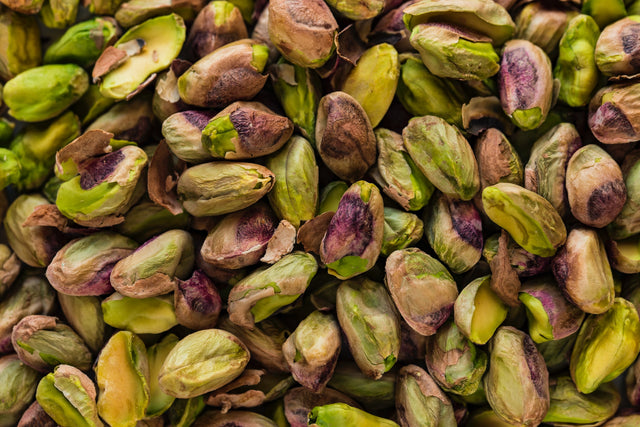When it comes to supplements that boost performance, most athletes think of heavy-hitters like creatine, beta-alanine, or pre-workouts packed with caffeine. But there's one supplement quietly working behind the scenes that deserves way more credit—L-glutamine.
While it may not directly increase your bench press max or shave seconds off your mile time, glutamine plays a crucial role in recovery, immunity, hydration, and gut health—the foundational systems that keep your body running like a high-performance machine. In fact, studies show that L-glutamine could be one of the most effective supplements for post-workout recovery, reducing muscle soreness, supporting immune resilience, and even rebuilding the intestinal lining for better nutrient absorption.
If you're serious about improving your long-term performance, overall health, and the way your body feels between training sessions, L-glutamine might just be the missing piece in your recovery stack.
What Is L-Glutamine?
L-Glutamine is a conditionally essential amino acid—conditionally essential meaning that while the body can typically produce enough under normal circumstances, there are certain conditions, like intense training, prolonged physical stress, injury, or illness, where dietary intake or supplementation becomes necessary. For endurance athletes, bodybuilders, and individuals undergoing high-intensity training, glutamine demand often exceeds supply, making supplementation critical for recovery, performance, and immune function.
The Most Abundant Amino Acid in the Body
Of the 20 amino acids utilized by the body, L-glutamine is the most abundant, comprising up to 60% of the free amino acid pool in skeletal muscle tissue (Cruzat et al., Nutrients, 2018). It plays a significant role in muscle recovery, protein synthesis, gut health, and immune function—all essential for high-performing athletes and active individuals.
What sets glutamine apart from other amino acids is its ability to cross the blood-brain barrier, which means it also has critical functions in the central nervous system, including neurotransmitter regulation and mental clarity. Once absorbed, glutamine is involved in:
-
Nitrogen transport between tissues
-
Acid-base balance regulation
-
Gluconeogenesis (the production of glucose from non-carbohydrate sources)
-
Serving as a precursor to nucleotide bases and the antioxidant glutathione, which helps combat oxidative stress and inflammation (Newsholme et al., Journal of Nutrition, 2003)
Why Athletes May Need More Glutamine
During times of prolonged training, especially in endurance sports, your muscles release glutamine faster than your body can replenish it. This can lead to a catabolic state, where lean muscle tissue is broken down for energy. Additionally, glutamine depletion compromises immune response, increasing the risk of infection and prolonging recovery time post-exercise (Castell et al., European Journal of Applied Physiology and Occupational Physiology, 1996).
As a result, supplementing with L-glutamine can:
-
Reduce muscle breakdown and soreness
-
Shorten recovery time between sessions
-
Support immune function and gut health
-
Improve nitrogen balance and cellular hydration
-
Help maintain cognitive function during prolonged exercise
Related Article
👉 The Ultimate Guide to L-Glutamine
Recommended Product
👉 Swolverine L-Glutamine (100 Servings, Unflavored)

5 Proven Benefits of L-Glutamine for Athletes
L-Glutamine is more than just a recovery supplement—it's a multifaceted amino acid that supports muscle recovery, immune health, gut integrity, hydration, and even strength gains. As a conditionally essential amino acid, its importance skyrockets during times of physical stress, high-volume training, or trauma, making it especially valuable for endurance athletes and high-performance individuals.
Below are five of the most researched and impactful benefits of supplementing with L-glutamine.
1. L-Glutamine Can Accelerate Recovery and Reduce Soreness
Muscle soreness is a natural response to training—but excessive soreness can hinder progress and delay your next session. L-glutamine helps rebuild and repair muscle tissue, inhibits muscle breakdown (catabolism), and supports a quicker return to training by promoting a more anabolic (muscle-building) internal environment.
In a randomized, double-blind, placebo-controlled study conducted at Dalhousie University, participants were given 0.3g/kg of body weight of L-glutamine daily for 72 hours post-exercise. Results showed faster recovery of peak torque and significantly reduced muscle soreness following eccentric resistance training (Street et al., Amino Acids, 2011).
Glutamine also works synergistically with BCAAs (Branched-Chain Amino Acids) to enhance muscle repair and reduce soreness, especially when taken after prolonged or high-intensity training sessions.
🔗 Related Article: L-Glutamine: The Best Post Workout Supplement for Recovery
2. Glutamine May Restore Immune System Health
Prolonged or intense training can lead to immune suppression, increasing the risk of illness, especially in endurance athletes and bodybuilders. Glutamine supports the production of cytokines (small proteins involved in immune signaling) and T-cells, which are essential for immune defense.
A study published in the International Journal of Clinical Pharmacology and Therapeutics found that athletes supplementing with 10g of L-glutamine per day for six weeks experienced significantly higher T-cell counts compared to a control group—indicating that glutamine may reduce the immunosuppressive effects of intense training (Rohde et al., 1998).
🔗 Related Article: The Best Supplements for Immune System Health
3. Glutamine May Improve Digestive and Gut Health
One of the most compelling and lesser-known benefits of glutamine is its ability to restore gut lining integrity and support individuals suffering from leaky gut, IBS, and inflammatory bowel diseases (IBD) such as Crohn’s and ulcerative colitis. Glutamine is a primary fuel source for intestinal epithelial cells, playing a vital role in gut barrier function and reducing intestinal permeability (van der Hulst et al., Gut, 1993).
In a double-blind, placebo-controlled clinical trial, 115 patients were given 15g of L-glutamine daily for 8 weeks. Results showed that nearly 80% of the glutamine group met their primary endpoint—a significant reduction in IBS symptoms and improved stool quality and frequency (Zhou et al., Gut, 2019).
Glutamine supplementation helps maintain nitrogen balance, rebuild gut villi, and protect against bacterial translocation into the bloodstream.
🔗 Related Article: Can Glutamine Help Heal Leaky Gut?
4. Glutamine May Support Muscle Growth and Strength Gains
While L-glutamine doesn’t directly increase strength like creatine, it promotes positive nitrogen balance, a key factor in muscle protein synthesis. It also reduces muscle protein breakdown—a process called muscle catabolism—which supports the development of lean muscle over time.
Evidence suggests that glutamine combined with BCAAs may optimize anabolic signaling and enhance protein metabolism in athletes (MacLennan et al., Journal of Nutrition, 1999). BCAAs act as a nitrogen source, and glutamine helps distribute nitrogen efficiently to support new tissue growth and muscle preservation under stress.
🔗 Related Article: 9 of the Best Supplements for Faster Muscle Recovery
5. Glutamine May Improve Hydration and Endurance
Hydration is often overlooked in recovery, but studies show that dehydration exacerbates post-exercise soreness and increases perceived fatigue. L-glutamine supports cellular hydration by enhancing sodium uptake and water absorption through its impact on the gut and electrolyte transport.
In a study published in the Journal of the International Society of Sports Nutrition, 10 endurance-trained males supplemented with 0.3g/kg of glutamine before exercise. Results showed increased time to exhaustion, reduced fatigue, and enhanced sodium absorption in skeletal muscle, improving hydration status and muscle function (Hoffman et al., JISSN, 2010).
Improved hydration also supports muscle contractility, helps flush waste products from muscle tissue, and accelerates the recovery process—making L-glutamine an unexpected yet valuable hydration aid.
🔗 Related Article: 14 Studies That Prove L-Glutamine May Improve Inflammatory Bowel Disease
What’s the Correct Dose of L-Glutamine?
General Athletic Use: 5–10g Per Day
Research suggests that the clinically effective dose of L-glutamine for recovery and performance enhancement ranges between 5–10 grams per day, typically taken post-workout or split into two servings—once in the morning and once after training. This dosage has been shown to support muscle tissue repair, reduce exercise-induced soreness, and support immune system function, especially in athletes undergoing high training loads (Cruzat et al., Nutrients, 2018).
Digestive and Immune Health: 20–30g Per Day
In clinical applications, individuals with inflammatory bowel diseases (IBD) such as Crohn’s disease or ulcerative colitis may benefit from higher doses of 20–30 grams per day, under the supervision of a healthcare provider. Glutamine supplementation at this level has been shown to reduce intestinal permeability, improve gut barrier function, and restore intestinal homeostasis (Zhou et al., Gut, 2019).
⚠️ Important: If you're managing a chronic digestive condition, consult with your physician before adding high-dose L-glutamine to your regimen.
Natural Sources of Glutamine
In addition to supplementation, you can increase glutamine levels by consuming glutamine-rich foods, including:
-
Chicken
-
Beef
-
Eggs
-
Salmon
-
Greek yogurt
-
Tofu
-
Legumes
Incorporating these whole foods alongside a supplement like Swolverine’s L-Glutamine ensures consistent glutamine support for muscle recovery and overall wellness.
Benefits of L-Glutamine: Takeaway
L-Glutamine may not come with the immediate "pre-workout hype" of beta-alanine or creatine, but its impact on recovery, immunity, gut health, and performance longevity makes it one of the most versatile and foundational supplements for athletes and active individuals alike.
Backed by research, glutamine can:
-
Accelerate recovery times by reducing muscle soreness and promoting tissue repair
-
Decrease illness susceptibility by supporting white blood cell function and immunity
-
Enhance digestive health by repairing the gut lining and supporting nutrient absorption
-
Preserve lean muscle mass during intense training or calorie-restricted phases
-
Improve hydration and endurance through better nutrient transport and electrolyte absorption
By simply adding 5–10g of L-glutamine to your post-workout shake or daily routine, you can boost your ability to train harder, recover faster, and maintain better overall health—both inside and outside the gym.
Ready To Improve Your Workout Recovery And Add Glutamine To Your Supplement Regimen?
Swolverine's L-Glutamine is fermented from natural plant sources, and has 100 unflavored 5g servings to help with your athletic performance, digestive health, and immune system function. Click the image below and get yours today!
SWOLVERINE IS AN ENDURANCE ATHLETE AND ACTIVE LIFESTYLE BRAND. MADE FOR THE ELITE ATHLETE, AND THE STRONG-WILLED OUR PRODUCTS WERE DESIGNED TO FUEL YOUR ATHLETIC PERFORMANCE. WE PERFORM WHEN YOU PERFORM.
We believe that everyone can optimize not only their athletic performance but their human potential. The way we believe we can optimize performance is through transparency, clinically effective doses, and clinically proven ingredients with evidence-based outcomes. We provide the nutrients you need to power your active lifestyle.














